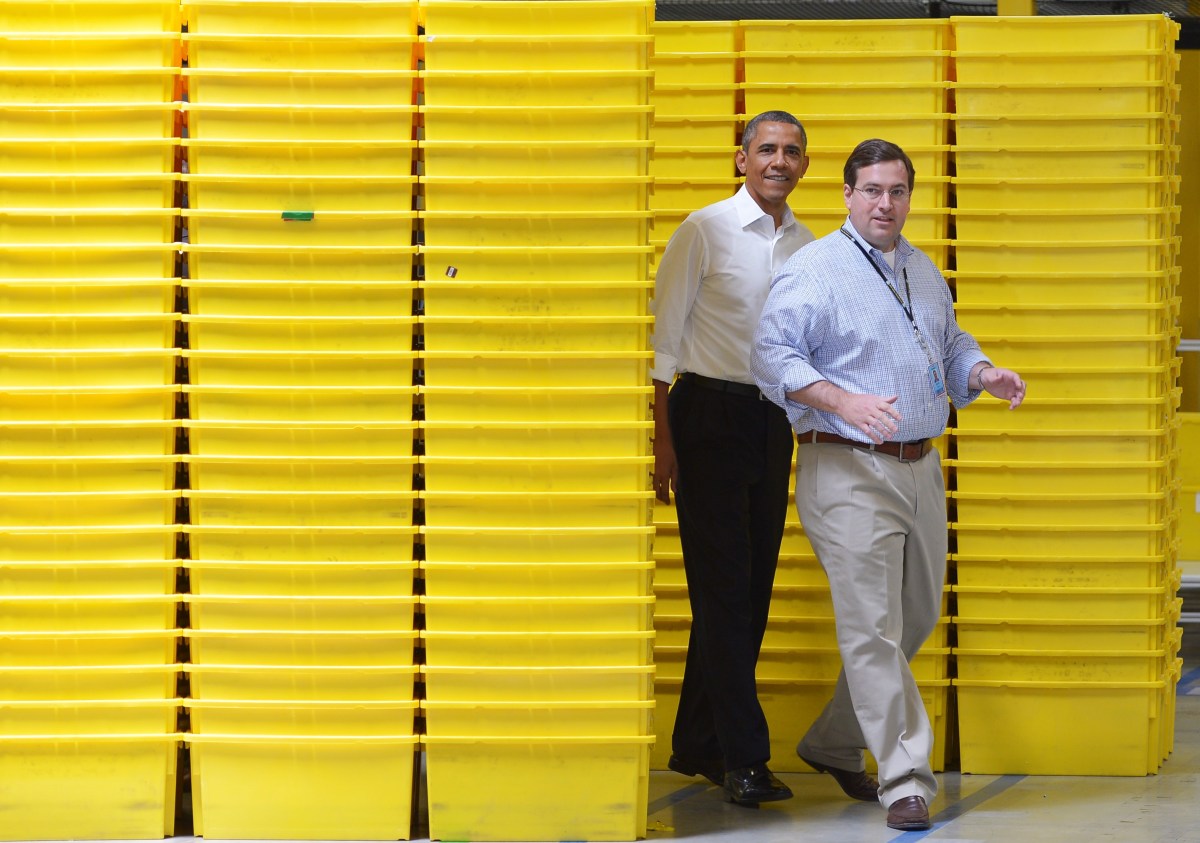Dave Clark has had a rollercoaster of a time these past two years.
After stepping down in June 2022 as CEO of Amazon’s worldwide consumer division — a role he held for over two decades — Clark relocated to Dallas to join supply chain logistics company Flexport. With a board mandate to prepare Flexport to go public, Clark led as co-CEO, and later on as CEO, while founder Ryan Peterson transitioned to executive chairman.
But all did not go smoothly. In September 2023, Flexport’s board, led by Peterson, pressured Clark to resign, accusing him of mismanagement. Clark maintained he was only trying to fix what he considered “extensive” organizational problems. Subsequent reporting backed up Clark’s claims, but the damage was done. Clark was out.
Clark mulled a gubernatorial run in Texas; he hired strategists, too. But the allure of launching a business — one he could run as he saw fit — proved to be stronger.
Clark on Tuesday unveiled his new company, Auger, and he’s raised a mammoth, $100 million seed round led by VC firm Oak HC/FT. Auger is developing an AI-powered tool for supply chain-dependent businesses that integrates with existing inventory management platforms to deliver real-time insights.
“Throughout my career, I’ve seen first-hand how broken supply chains don’t just impact companies, but in fact millions of people: delays that prevent products from reaching shelves, miscommunications that force employees into overtime, higher consumer prices, and inefficiencies that contribute to a growing carbon footprint,” Clark told TechCrunch. “These aren’t just business problems — they’re human problems. And it’s time we fix them.”
Clark was vague about what precisely Auger is building, save that it “unifies” supply chain data for various types of aggregation. There seems to a chatbot component, too: Clark says users will be able to “just ask” questions like “Give me inventory information for next week’s shipment,” and Auger will serve up that data “instantly” in a “consumer-grade” portal.
“Despite heavy investments, companies still rely on fragmented ‘Franken-software’ — disjointed systems patched together from incompatible technologies that don’t communicate effectively,” Clark said. “This leads to inefficient workarounds and forces critical decisions to be made using tools like Excel, which were never designed to handle the complexity of supply chains at this scale. Auger is creating a new solution for companies seeking better options.”
To Clark’s point, there’s robust demand for technology that helps organizations make sense of their supply chains. According to one source, 56% of retailers hold weeks’ worth of “safety stock” as insurance against supply chain visibility setbacks.
The lack of supply chain awareness — combined with growing supply chain headwinds, from dockworker strikes to turmoil in the Red Sea — is contributing to major global shipping disruptions. About a third of services companies and nearly half of manufacturers are having difficulty obtaining supplies, according to a Federal Reserve Bank of New York survey.
“Increasing disruptions and global conflicts [are] creating near-constant modifications in worldwide manufacturing and the flow of goods, stretching existing technology beyond its limits,” Clark said.
The more recent hurdles, combined with challenges introduced by the pandemic, have led to an explosion in the number of startups tackling supply chain visibility and management. The sector for logistics software is on track to reach $46.5 billion by 2025, per Markets and Markets. And funding is flowing healthily into upstart supply chain platform vendors — startups in the space received $15.4 billion in investments this year.
Indeed, Auger, based in Bellevue, Washington, is entering a market chock full of formidable rivals.
Altana, which bagged $200 million from investors in July, uses an AI system to create a shared view of international supply chain networks, drawing from both logistics and B2B data. Everstream and Pando offer their own dashboards for analysis, intended to complement transportation management and supplier relationship management systems.
Clark asserts that what Auger’s making will be truly different.
“Auger will integrate data from multiple sources and use advanced AI and machine learning to generate automated, dynamic insights in real time,” Clark said. “The platform will offer a single pane of glass across planning, forecasting, and financing [to] … enable teams to move beyond manual tasks and focus on driving innovation.”
Clark may well have what it takes to go up against the larger vendors in the SaaS supply chain software space. Logistics is his speciality, after all. At Amazon, Clark was an early proponent of robotic automation, which saved the company tens of millions of dollars. And, during the pandemic, Clark dramatically expanded Amazon’s operations to meet the elevated demand for online goods.
Clark has made big managerial missteps, on the other hand. He misjudged the reception of Amazon’s brick-and-mortar businesses, and, in the final stretch of the pandemic, over-expanded the company’s warehouse capacity. That latter decision led to billions in cost overruns.
Oak general partner Matt Streisfeld has confidence in Clark, calling him a “once-in-a-lifetime” founder with the potential to “reimagine supply chain management software.”
“We are in the midst of a critical shift, with more data shifting to the cloud every day,” Streisfeld said in a statement. “With this shift, we will have more accessible information that can be structured for not only real-time, continuous planning, but also so that AI can be layered on to automate more workflows and deliver more business and financial insights for inventory management and forecasting.”
Clark says that Auger, which has yet to secure customers or generate any revenue, will release more information about its product roadmap and milestones in the coming months. “Our founding team is made up of relentless problem-solvers with a proven track record of delivering transformative supply chain solutions at scale,” he added. “This is just the beginning.”

